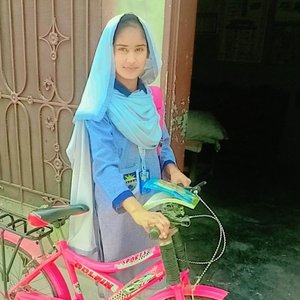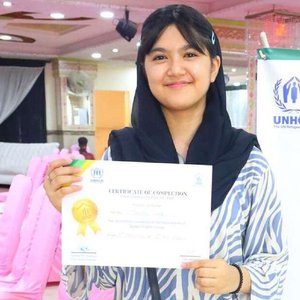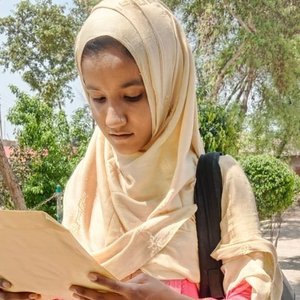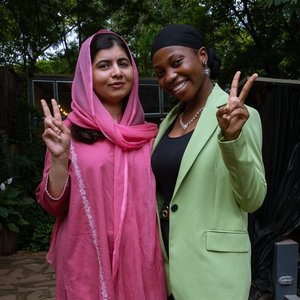My unforgettable chat with Malala
Thuézia with her co-host, Katia, and Malala in Pernambuco, Brazil. (Photo credit: Yasmin Velloso)
16-year-old Thuézia Souza is a girl activist researching the causes of girls’ school dropout in Cabo de Santo Agostinho, Pernambuco, Brazil. She reflects on her chat with Malala about her dreams for girls’ education in Brazil.
Nervous and joyful were the only two words that could define how I was feeling. I am quite sure my peers from the Girls on the Move for Education project shared the same excitement. I could hardly believe that Malala would visit our community to learn how we have changed other girls’ lives. We are girl activists combating school dropout in Cabo de Santo Agostinho, a disadvantaged community in the state of Pernambuco, Brazil. The project is implemented by the non-profit organisation Centro das Mulheres do Cabo (CMC).
The news that Malala would visit Brazil and meet us all came as a huge surprise. The fact that my friend Katia Raissa and I would not only meet her but also have the opportunity to interview her in our radio show blew my mind.
Malala visited three Brazilian state regions to meet with girls like us, Education Champions, and local, regional and national authorities to promote girls’ education in Brazil. Out of everyone, she chose to meet us.
“One of my biggest dreams for girls in Brazil is that all of us can achieve what we want and obtain the higher education we desire and deserve. I want all of us to become doctors, nurses, lawyers, journalists, and activists. ”
Since we started conducting active searches in our community, about 40 girls have returned to school. With the power of our activism and research, on the causes of school abandonment, we convinced local authorities to design a municipal plan and establish an intersectoral committee for combating school dropouts — a problem that affects millions of girls due to early marriage, pregnancy, gender-based violence, domestic work, long travel distances, and unaffordable public transportation to reach school. Through the #GirlsOcupy campaign, we joined marches for gender equality, attended training sessions, and engaged in dialogues with authorities in public hearings, forums and even at the mayor’s office, where I acted as a mayor for a day.
Part of our activism is dedicated to media and content creation. Members of the Girls on the Move for Education project have been leading the radio show “Girl Chat” since October 2021, in which we share our challenges and hopes as students and girl activists. Interviewing Malala was a tremendous responsibility. Before the interview, we invited Malala to join a traditional “ciranda” with us — a typical dance from Pernambuco in which all participants hold hands to form a small circle. We thought it would help us relax and become energised for the big moment!
Video credit: Fernanda Frazão
We started the program with a snippet of our project song, "Girl, I Won't Let You Stop Dreaming," and started asking our questions for Malala.
The burning question I wanted to ask was about Malala’s dream for Brazilian girls. I was so thrilled to learn that she had prepared the same question for us. When she got to know more about our reality as girls in Brazil, she saw how important supporting programmes in Brazil was and we realised how lucky we were to be able to implement our feminist project in our community.
“I learned from my interview with Malala is that we, girls, can be whatever we want, and we should never stop dreaming. “(Photo courtesy of Yasmin Velloso)
In response to her, I expressed one of my biggest dreams for girls in Brazil: that all of us can achieve what we want and obtain the higher education we desire and deserve. I want all of us to become doctors, nurses, lawyers, journalists, and activists.
It was such an exciting exchange! What I learned from my interview with Malala is that we, girls, can be whatever we want, and we should never stop dreaming.
 Read more
Read more












